in-store offers
Best Films of 2018
1-100

The votes are in, the numbers have been crunched and the films have been obsessed over. Below is our comprehensive list of the best films of 2018 (using DVD/Blu-ray release dates).
You can read about our favourite films and albums in more depth in this month’s Best of 2018 special edition of The Fopp List – available for FREE in all of our stores, right up until the end of January.
What did we get wrong? What did we miss? What is your favourite movie from 2018? Let us know in the comments, or tweet us @foppofficial.
1. Lady Bird
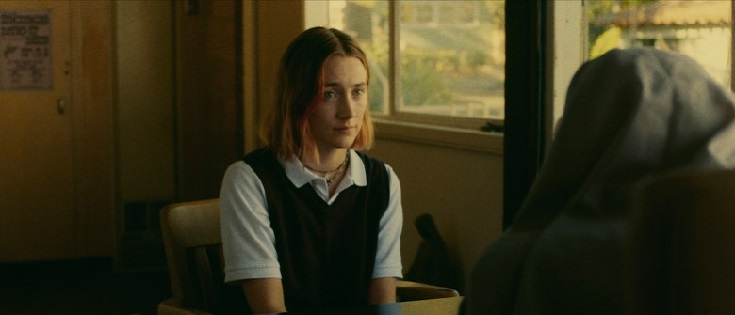
Released back in February, Lady Bird has remained a top highlight of 2018. Much of that enduring quality is down to Greta Gerwig – who writes and directs with whimsical, witty spirit. Lady Bird is a loosely autobiographical story of a confused teenage girl growing up during the early Noughties. Gerwig, like the film’s protagonist Christine McPherson – aka Ladybird – grew up in Sacramento (“the Midwest of California”), attended Catholic high school where she entertains lofty aspirations – “I want to live!” she declares – of going to Paris or perhaps one of the storied east coast liberal arts schools. She lives at home with her parents – a frank, hardworking mother (Roseanne’s Laurie Metcalf) and her easygoing, indulgent father (Tracy Letts). It is a knotty familial bond – Christine’s nickname itself is an act of defiance against her parents: “It was given by myself to myself.”
As played by Saoirse Ronan, Lad Bird is a mixed bag of emotions – hurtling between delight, sorrow, fear and anger, full of abrupt, capricious energy. The film revolves around her relationships, with her parents, her best friend Julie (Beanie Feldstein), two boyfriends and the school queen bee who Lady Bird seeks to befriend. Lady Bird and her family live on “the wrong side of the tracks”, and one aspect of Gerwig’s story follows the path of money and the delicate social distinctions between those who have it and those who don’t.
Along the way, there are several elegant and witty diversions. As the film develops, it becomes apparent that Lady Bird’s dream to go to a fancy college “where writers live in the woods” is part of a warm, generous character study of a young woman in the process of working out who she is, and all the hazards that follow.
Michael Bonner
2. A Fantastic Woman
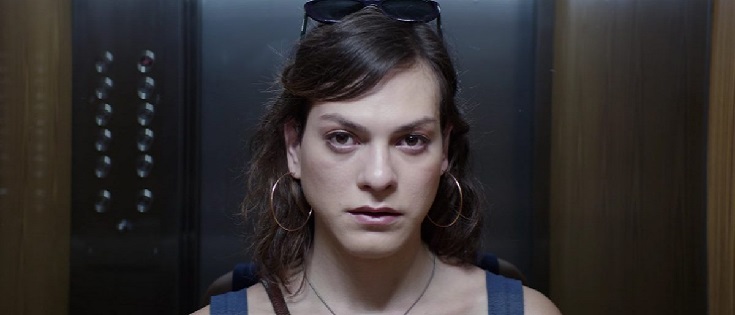
Chilean director Sebastián Lelio’s previous film, Gloria, featured a strong female protagonist determined to live her life resolutely on her own terms. His latest Oscar-winning film, meanwhile, follows another resilient lead character – Marina (newcomer Daniela Vega), a transgender singer who as the film opens is in a relationship with an older man, Orlando. Alas, tragedy strikes and soon Marina finds herself marginalised and abused from all corners. Her partner dies and Marina is exposed to the full spectrum of hostility, ranging from the emergency services to Orlando’s family – whose contempt turns, eventually, towards violence.
Lelio’s film is really about the ability of Marina to bear with dignity the unwelcome indignities she is forced to suffer – the way in which she is initially criminalised by the authorities and subsequently ostracised by Orlando’s ex-wife and son – all the while bearing the burden of grief. It is a low-level battle, fought on a daily basis, for identity and Marina’s right to exist as she chooses.
Of course, A Fantastic Woman is not the first film to feature a trans character – The World According To Garp, The Crying Game, Boys Don’t Cry, Dallas Buyers Club and The Danish Girl have all done so, with great acclaim – but those all featured cisgender actors. Lelio’s film represents a genuine breakthrough in casting a trans person in a trans role. Not only that, but Vega has enjoyed considerable acclaim and awards for her performance – Marina bears her troubles with great stoicism, and Lelio’s film celebrates her strength and spirit. In some respects, A Fantastic Woman recalls Almodovar – another Spanish-language filmmaker who celebrates female leads and sexual taboos; but ultimately Lelio’s film is very much his own. A rich and warm film that will stay with you long after the credits have rolled.
Michael Bonner
3. You Were Never Really Here
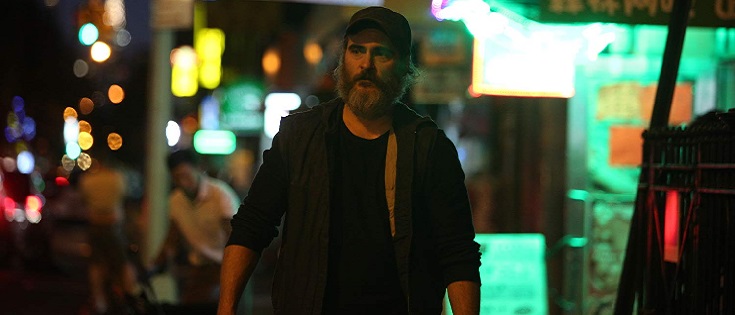
A psychologically damaged veteran drives around New York at night; a young girl in danger from predatory older males; a politician up for re-election. It’s hard not to watch Lynne Ramsay’s latest film without thinking of Martin Scorsese’s Taxi Driver. In Joaquin Phoenix‘s Joe, she has created a man who has taken to heart Travis Bickle’s famous maxim and is relentlessly washing the scum off the streets. When we first meet Joe, he is washing blood from a hammer. There are jump cuts to a child in some kind of distress. Joe’s mind is a jumble of memories, flash-forwards and – perhaps – fantasies, from which it is possible to glimpse a childhood marred by abuse and more recent but equally distressing experiences accrued during wartime. Ramsay offers us a study of a man whose life has been corroded by violence but who now believes that some kind of rescue for himself – and for others – might be possible.
Michael Bonner
4. Black Panther

There have been substantial changes afoot in on-screen superhero culture over the last 18 months. Last May, DC gave its first starring role to a female superhero, Wonder Woman, while this year, Marvel brought its first black superhero to the big screen – Black Panther. After the death of his father, T’Challa (Chadwick Boseman) returns home to the African nation of Wakanda to take his rightful place as king. As you’d expect, there are enemies aplenty lurking in wait – and, as Wakanda is a technologically superior nation, you can expect advanced super-weaponry among the many satisfying CGI sojourns. As with Wonder Woman, Black Panther follows relatively familiar narrative arcs – both as origin stories, as much as anything – but both films enjoy a welcome deftness and lightness of touch.
Michael Bonner
5. 120 BPM
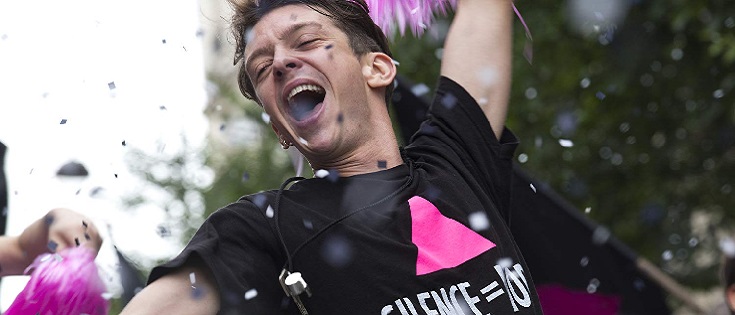
Robin Campillo’s fiery ensemble piece is set during the late 1980s, focusing on the Paris wing of ACT UP – the international direct-action organisation who demanded immediate, large-scale research into AIDS. “We’ll keep pissing the state off until there’s a real prevention policy,” says one activist early on. Along the way, cracks become apparent in different factions within the movement: a more militant wing who demands more aggressive disruption and a more conservative element who are concerned such behaviour would essentially undermine the core message. Campillo’s film follows the blossoming romance between newcomer Nathan (Arnaud Valois) and Sean (Nahuel Perez Biscayart), a firebrand whose HIV+ status is rapidly deteriorating. Campillo brilliantly juggles the scenes of political action with the love story between Nathan and Sean as it works towards its final state.
Michael Bonner
6. The Endless
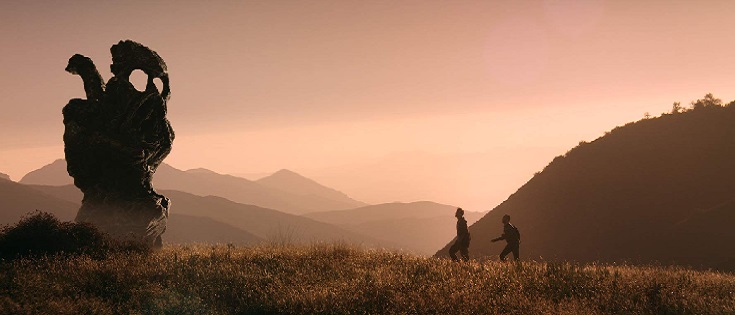
It’s a good time for innovative science-fiction at the moment. Certainly, The Endless continues a lot of the good, genre-bending work done by Shane Carruth, Ryan Johnson and Denis Villeneuve in recent years – but takes it off in another direction. It is directed by and stars Justin Benson and Aaron Moorhead as two brothers who were once members of a “UFO death cult”. Their lives since have been largely lived on a downward trajectory until one day the members of their former cult get in touch. A visit to the cult, for closure, is undertaken. At first, it is hard to see what the fuss was all about – this is idealistic commune living, complete with on-site brewery. What’s not to like? That is, until events reveal a stranger purpose at work. There are spatial and temporal distortions – and that is just the beginning. Benson and Moorhead have crafted a splendid film – that asks both big questions while also delivering eerie, unsettling moments.
Michael Bonner
7. The Square
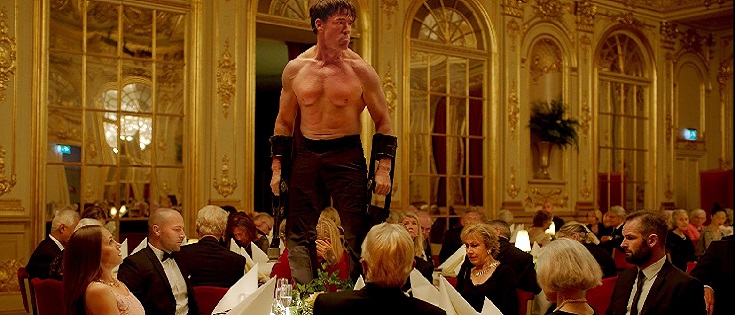
To a degree, The Square channels the spirit of Lars Von Trier and Yorgos Lanthimos – filmmakers who have routinely upended middle class entitlement by surreal and unsettling means. Case in point: Christian (Claes Bang), the stylish director of a contemporary art museum. As The Square opens, Christian is preparing to launch a new exhibition, The Square – a “sanctuary of trust and caring. Within its boundaries, we all share equal rights and obligations.” Alas, Christian’s PR team require something more provocative to make an impact on social media – “There’s more to this exhibition than a Facebook update,” says Christian. At the same time, Christian’s phone and wallet are stolen in a wily, theatrical street hustle which, it transpires, is far more inventive than the other work on display in Christian’s museum. Both angered and amused by the theft, Christian decides to try and retrieve his possessions.
What follows is a strange business. Ruben Östlund’s film presents itself ostensibly as a smart satire of the art world. In the opening sequence, Anne (Elizabeth Moss), a journalist interviewing Christian, asks him to explain a bewildering manifesto about the “dynamics of the exhibition”. He is unable to reply with any clarity so deflects by asking whether her handbag be considered art or not. Behind him, a fluorescent sign reads “YOU HAVE NOTHING”. Similarly, the PR company’s proposed campaign for The Square resembles something Perfect Curve might concoct in the BBC sitcom, W1A, though far more tasteless.
But as Christian attempts to track down his phone and wallet, Östlund steers the film into weirder territory; a cinematic rabbit hole, if you like. An onstage Q&A with artist Julian (Dominic West) is interrupted by a man with Tourette’s Syndrome in the audience. Anne appears to share an apartment with an ape. An interactive art installation presented as a dinner party morphs into an excruciating Theatre of Cruelty. Bad decisions multiply.
Michael Bonner
8. Three Billboards Outside Ebbing, Missouri
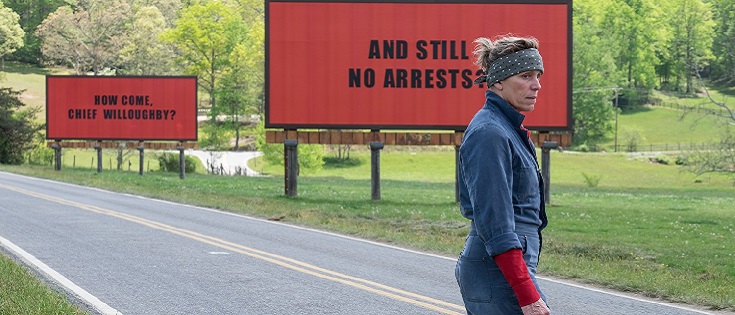
The plot of Irish playwright Martin McDonagh’s latest concerns Mildred Hayes (Frances McDormand), a grieving mother whose teenage daughter was raped and murdered. Mildred has reached the limits of her frustration with the local police and she rents a trio of unused advertising hoardings to shame Chief Sheriff Bill Willoughby (Woody Harrelson) into action. But while many townsfolk sympathise with Mildred’s plight, Willoughby is widely liked; besides, he is dying from pancreatic cancer, too, an open secret about town. As Mildred’s quest for justice veers towards desire for revenge, McDonagh’s film assumes a dark momentum. There are tricksy narrative contrivances that lurch the film in unexpected directions. McDonagh’s cast is superb, though – Harrelson provides the film’s moral core while McDormand’s controlled fury brings focus to the various plot contraptions.
Michael Bonner
9. The Shape Of Water
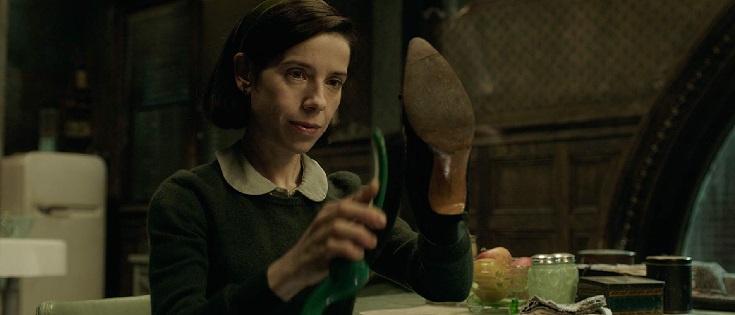
The Shape Of Water introduces us to an amphibian-humanoid creature (Doug Jones), hailing from the Amazon, who is captured and brought to a secret facility near Baltimore during the height of the Cold War. There, a cabal of American military and scientific minds believe he will prove an invaluable asset against the Russians. What no one counts on is that the creature will fall in love with one of the cleaning ladies at the facility; Eliza (Sally Hawkins). Aside from its obvious antecedents in 1950s sci-fi monster movies, Del Toro’s film plays as an open love-letter to cinema’s wider range. Events in the shadowy Baltimore facility, meanwhile, are redolent of Cold War-era noirs – complete with Russian spies and buzz-cut five star generals. But while Del Toro’s flight of fancy is fully formed, it is abutted by the real world – racism and homophobia are evidence of a particularly closed mindset. What could be Amelie-style tweeness is invested with warmth, beauty and a surprisingly deep emotional richness.
Michael Bonner
10. The Florida Project
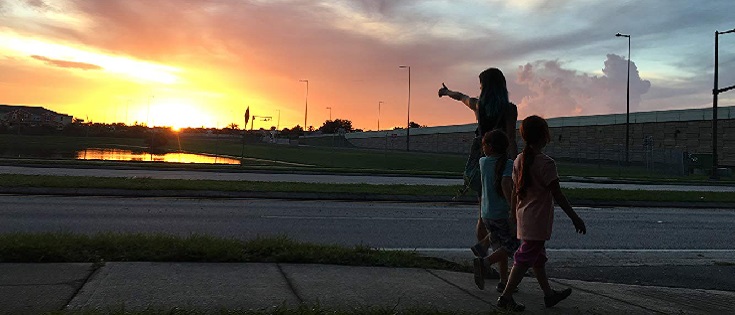
Somewhere near to Disney’s The Magic Kingdom in Orlando, Florida, just off Seven Dwarfs Lane, there lies a less auspicious palace of enchantment. This is The Magic Castle – a rundown social housing block. It is where six year-old Moonee (Brooklynn Prince) and her friends run wild. “It’s only the second week of summer and there’s already been a dead fish in the swimming pool,” grumbles the block’s exasperated manager, Bobby (Willem Dafoe). But to Moonee, the Magic Castle and its environs are a playground of the imagination. Halley (Bria Vinaite) – Moonee’s mother sees her child’s curiosity and energy as something to be cherished. After all, the reality of life at The Magic Castle is hard: Halley and her daughter take free handouts from a nearby diner or bread from a charity food van. This is a compassionate film about the conditions of working class America, where the next knock on the door might well be from a child welfare agency.
11. Loveless
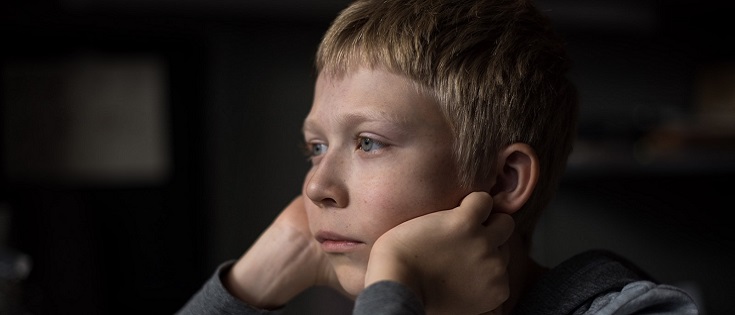
Andrey Zvyagintsev won much acclaim – and rightly – with Leviathan, his Oscar nominated portrayal of corruption and hard times in contemporary Russia. For the follow-up, he focuses on a couple in the midst of a bitter divorce, whose 12 year old son goes missing after one of their fights. The film becomes a mesmerizing missing-child procedural – including a grim sequence in a mortuary – where the police’s indifference represents a savage indictment of the uncaring state and an anxious investigation leads us into the remote lair of a sour grandparent and abandoned buildings full of lost children who are similarly fleeing from their toxic home lives. It is a grim film, but in its Ibsonite way, compelling and hugely important.
Michael Bonner
12. I, Tonya
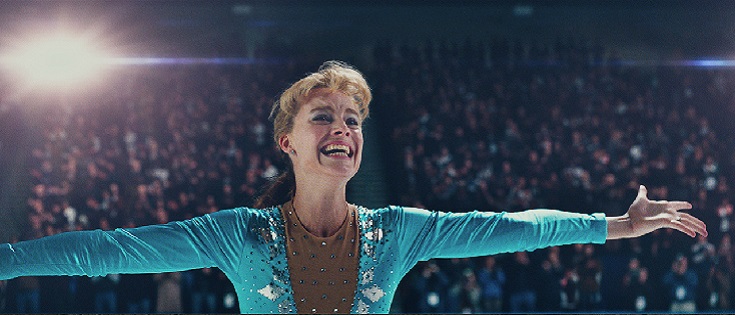
Is it a biopic? Or is it… something else? Much has already been documented about Tonya Harding’s rivalry with fellow skater Nancy Kerrigan, resulting in an attack on Kerrigan by a hitman hired by Harding’s ex-husband in the lead-up to the 1994 Lillehammer Olympics. Kerrigan was America’s sweetheart; Harding its dark nemesis. But in a way, both of them were accurate representations of all that is good and all that is bad about America. Skating, of course, is rarely depicted on screen: you might remember Will Ferrell’s Chazz Michael Michaels in Blades Of Glory – and that’s about it. Here, Margot Robbie is superb as Harding, the long-suffering victim of domestic abuse (at the hands of her appalling mother) while her husband Jeff (Sebastian Stan) feels emasculated by his wife’s success. It’s a volatile combination, and the success of I, Tonya is the way in which it artfully navigates its way round blackly comic mockumentary and something more intimate and – by the end – strangely moving.
13. Love, Simon
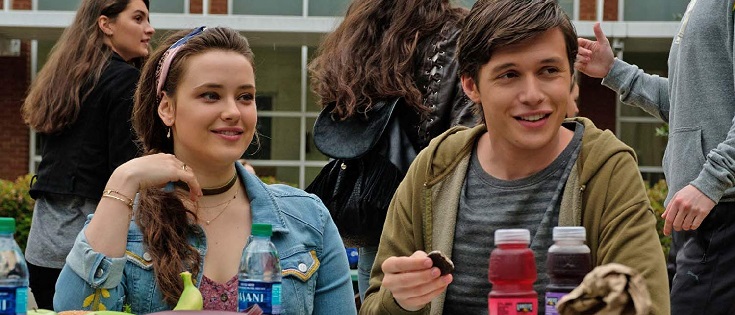
Earlier this year, The Observer ran a headline: “Love, Simon: At Last Hollywood Is Saying ‘I’m gay’”. Indeed, despite the recent high-profile successes of indies like Moonlight, God’s Own Country, The Handmaiden and The Miseducation Of Cameron Post, mainstream cinema has taken a long time to come out of the closet. Produced by 20th Century Fox, Love, Simon feels like a landmark event.
Adapted from a YA novel, Simons vs The Home Sapiens Agenda by Becky Albertalli, this is a glossy rom-com about an in-the-closet high school student (Nick Robinson) in Atlanta, Georgia whose “secret” is about to be revealed by a blackmailer; meanwhile, he has also fallen in love online with an anonymous classmate.
The success of Love, Simon – it took 66 million at the US box office – lies as much with the loose, likeable performances of Robinson and his juvenile cast mates as it does with the easy-going direction of Greg Beranti, a veteran of TV shows including Dawson’s Creek and Arrow. The tone here is vaguely reminiscent of the John Hughes ‘80s high-school movies – funny, sentimental and smart, relying on a well-placed pop soundtrack to hit those sweet spots. But critically, it is a film that feels well-judged: appealing both to a wider, straight audience while ensuring a gay crowd don’t feel as if the film’s story is being compromised. Simon’s sexuality is certainly not a subplot in all this – but the nifty, poignant way his daily deceptions and anxieties of being exposed are handled ensure all audiences can process Simon’s ongoing experiences. The final third – his coming out – is deftly and generously handled.
Love, Simon is an important film, certainly – but it is also a very good film, and those two elements are not always so mutually compatible.
14. Loving Vincent
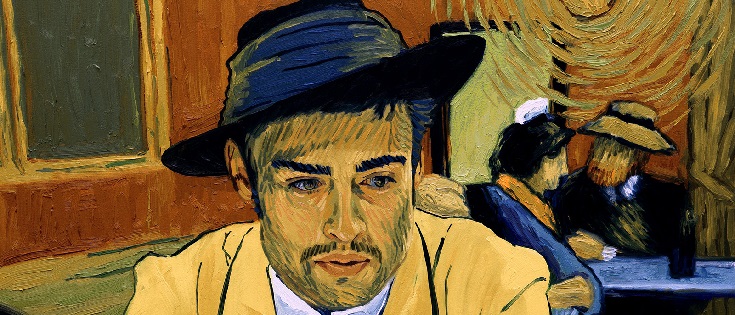
Vincent Van Gogh, of course, has been the subject of biographical pictures before: most famously, Kirk Douglas in Lust For Life while more recently Maurice Pialat and Tim Roth have played him on the big screen. He even cropped up in an episode of Doctor Who, played by Tony Curran. None of these versions, however, are quite as visually arresting as this. Directors Hugh Welchman and Dorota Kobiela have used a technique similar to the rotoscoping process pioneered by Richard Linklater in Waking Life and A Scanner Darkly, whereby the film is shot via traditional methods and then painted over, effectively converting a live action product into something resembling an animated Van Gogh painting – the result is immersive and dreamlike. The script is informed by a 2011 biography by Steven Naifeh and Gregory White, which entertained the possibility that Van Gogh didn’t commit suicide but was in fact shot by a 16 year-old boy in Auvers-sur-Oise, where the artist spent his final years.
15. Call Me By Your Name
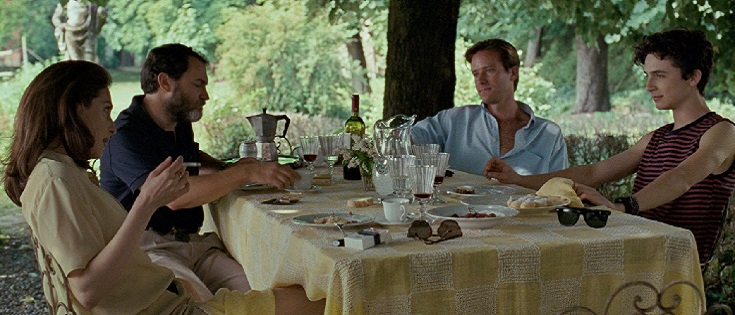
At 89, James Ivory shows no signs of slowing down. As one half of the successful Merchant Ivory Productions, he directed all their peerless run of literary adaptations, including A Room With A View, Maurice, Howard’s End and Remains Of The Day. Many of these pursued tales of difficult romances, often unfolding in delightful European locations. Accordingly, Call Me By Your Name is based on a 2007 novel by André Aciman, which charts a romance between a 17 year-old Italian-American Elio (Timothée Chalamet) and his father’s assistant Oliver (Armie Hammer) during a summer in Lombardy. Director Luca Guadagnino had covered similar territory before – with the lush, luxuriant sensuality of 2009’s I Am Love. There is strong, sympathetic support from Michael Stuhlbarg and Amira Casar as Elio’s parents but the two leads are especially impressive, capturing the first, fluttering flushes of their illicit romance.
16. A Quiet Place

In an alternative universe, it may well be that it is Martin Freeman who is fearlessly defending his family from invading aliens, dressed only in the finest mod gear. As it is, A Quiet Place marks the latest fabulous career progression for John Krasinski– aka Jim from the American version of The Office, essentially a taller, less Acid Jazz version of Freeman’s Tim. Since that breakthrough, Krasinski has worked round a clutch of fairly mid-range films, displaying a likeable, easy-going charm. But recently something seems to have happened to Krasinski. He has become a bona fide action star. He is currently playing the role of Jack Ryan, the CIA analyst previously played by Harrison Ford, Alec Baldwin & Ben Affleck. There are explosions and gunfights in Middle Eastern cities; a far cry from the Dunder Mifflin offices in Scranton, Pennsylvania.
A Quiet Place, meanwhile, finds Krasinski donning many hats as director, co-writer and star. It is pitched as a horror film, but as with many other movies given a similar billing, it is essentially a meditation on the dynamics of the American family. In this instance, this is quite explicitly rendered. It is the near future and most of Earth’s human population has been wiped out by sightless creatures with hypersensitive hearing. The Abbott family— Evelyn (Emily Blunt), husband Lee (Krasinzki), congenitally deaf daughter Regan, and sons Marcus and Beau—silently scavenge for supplies in a deserted town. While out in the open, the family communicates with sign language.
To some extent, A Quiet Place recalls the dystopian sci-fi parables of the 1960s and 70s – Planet Of The Apes and The Omega Man, perhaps, where mankind has been all but destroyed by external factors. Krasinski’s script is front loaded with suspenseful moments from otherwise familiar domestic experiences – a trip to the supermarket, for instance, could prove fatal – although it is the very human acting from Krasinski, Blunt and the younger cast members who bring the post-apocalyptic drama very close to home.
17. God's Own Country
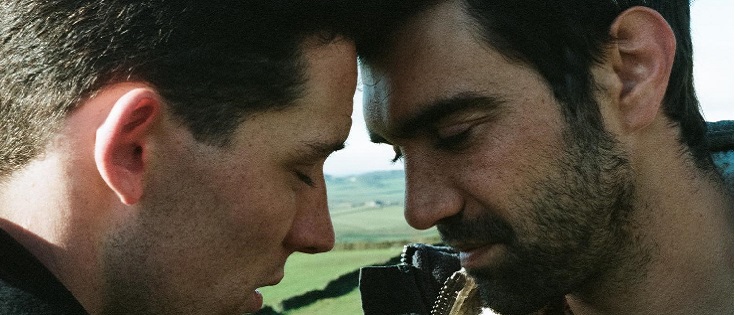
BAFTA Nominated God’s Own Country is a very British love story set in the rugged landscape of West Yorkshire by first time director Francis Lee. It is in this rugged landscape that Johnny Saxby – (Josh O’Connor) struggles to get by. He helps run his family farm alongside his grandmother (Gemma Jones) after his father (Ian Hart) falls ill. Conversation is terse and flinty; such is the tough, unsentimental nature of this community. During lambing season, the farm takes on a Romanian migrant worker, Gheorghe Ionescu (Alec Secareanu); up in the hills, Johnny and Gheorghe’s relationship develops away from prying eyes. It would be easy to see God’s Own Country as an uneasy mix of Brokeback Mountain and All Creatures Great And Small – it isn’t. Instead it feels closer in spirit to Andrea Arnold’s Wuthering Heights – which similarly took place in an eerie, untamed wilderness.
18. Happy Death Day
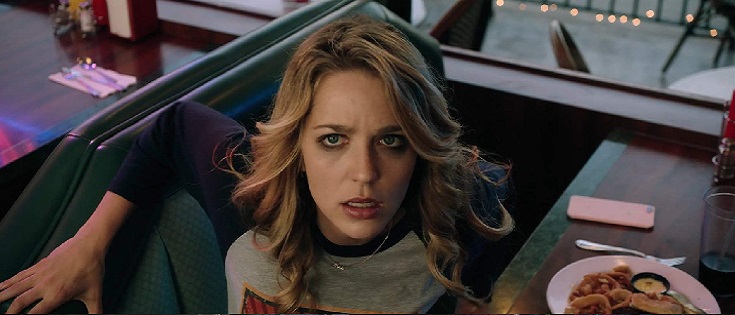
Groundhog Day with a bodycount, Happy Death Day charts the troubling experiences of a college student, Theresa ‘Tree’ Gelbman (Jessica Rothe), who finds herself in a time loop, forced to relive her own brutal murder until she has discovered the true identity of her killer. Like the Final Destination films, much of the success of this kind of slasher film – where the audience is in on the gig – is guessing the manner of the next murder. Hanging? Burned to death? Poisoning? All of these methods are brought into play here by director Christopher B. Landon, the eminence gris behind such recent horrors as the Paranormal Activity series. Landon keeps his operation running smoothly – and Rothe gives a well-judged performance that’s just the right side of knowing. Perhaps less a connoisseurs choice than a broad canvas mainstream shocker.
19. Ghost Stories
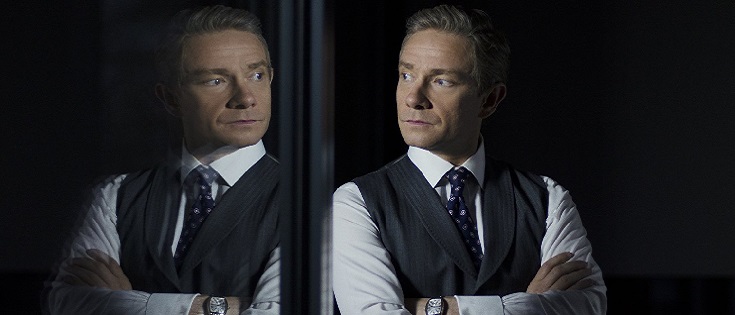
A British portmanteau horror, akin to the Amicus’ line from the Sixties and Seventies, Ghost Stories is the product of The League Of Gentlemen’s Jeremy Dyson and Andy Nyman – a magician and mentalist whose credits include several series with Derren Brown. Nyman appears as Philip Goodman, a cynical non-believer who hosts a TV show Psychic Cheats, who acts as the link between the three stories. Originally a stage production, Ghost Stories leaps onto the big screen with help from some familiar faces from TV, including Martin Freeman and Paul Whitehouse. Anyone expecting gory stories will be disappointed; these are small, clammy tales that hinge on characters straying into, or being unwittingly drawn towards, mysterious spaces –Robert Aickman is as good a reference point as Amicus. Strong work from all concerned, especially The End Of The F…ing World’s Alex Lawther as a teenager who takes his parents car for an unexpected ride.
20. Mary & The Witch's Flower
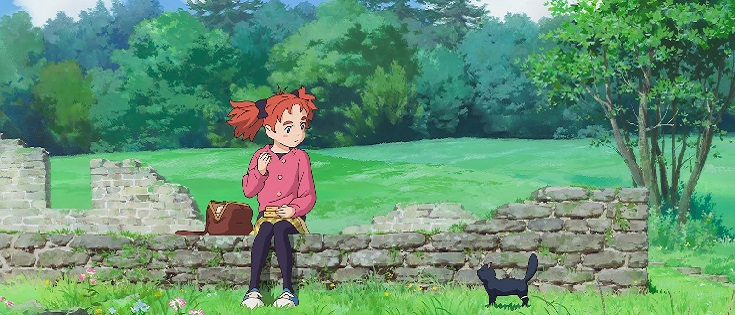
Like Studio Ghibli films Howl’s Moving Castle, Arrietty and When Marnie Was There, this animation from director Hiromasa ‘Maro’ Yonebayashi is another example of the way that Japanese animation has drawn from British children’s’ literature and remade it in its own magical manner. This is based on a 1971 book by Mary Stewart called The Little Broomstick and follows a lonely girl called Mary who is living in the countryside with her great-aunt. In the nearby woods, she encounters a mysterious cat, magical flowers and a broomstick – which leads her, of all places, to a school for witches. Mary And The Witch’s Flower is the first film from Studio Ponoc, an animation studio founded by veterans of Studio Ghibli, and the pedigree is key. Yonebayashi’s film carries many of the Ghibli admirable traits – a young protagonist, a small animal who provides a gateway into a magical realm, resourcefulness and courage winning the day.
21-100
21. Isle Of Dogs
22. Phantom Thread
23. The Breadwinner
24. Mother!
25. Blade Runner 2049
26. Star Wars: The Last Jedi
27. Tully
28. The Death Of Stalin
29. The Disaster Artist
30. Wind River
31. Sweet Country
32. Brimstone
33. Bombshell: The Hedy Lamarr Story
34. The Eyes Of Orson Welles
35. Studio 54
36. Nothing Like A Dame
37. Hostiles
38. Blade of The Immortal
39. Custody
40. The Ciambra
41. Good Time
42. Happy End
43. Hounds of Love
44. Journeyman
45. The Killing of a Sacred Deer
46. L'amant Double
47. A Prayer Before Dawn
48. Lean On Pete
49. Marjorie Prime
50. Ready Player One
51. Darkest Hour
52. The Guernsey Literary and Potato Peel Pie Society
53. On Chesil Beach
54. The Party
55. Beach Rats
56. Films Stars Don't Die In Liverpool
57. Mary Shelley
58. Beast
59. Apostasy
60. I Am Not A Witch
61. Let The Sunshine In
62. Redoubtable
63. In The Fade
64. Thelma
65. The Third Murder
66. After The Storm
67. Racer And The Jailbird
68. Thor: Ragnarok
69. Professor Marston and the Wonder Women
70. Dark River
71. Journey's End
72. My Generation
73. Mountain
74. Westwood: Punk, Icon, Activist
75. Western
76. Goodbye Christopher Robin
77. Big Fish & Begonia
78. Funny Cow
79. Ingrid Goes West
80. The Man With The Iron Heart
81. Molly's Game
82. Victoria & Abdul
83. The Mercy
84. Hounds of Love
85. Ritual
86. IT
87. Unsane
88. A Ghost Story
89. Suburbicon
90. Una
91. Roman J Israel Esq
92. Gook
93. Most Beautiful Island
94. Wonder
95. The Rape of Recy Taylor
96. Only The Brave
97. Tomb Raider
98. Stronger
99. Borg Vs. McEnroe
100. Zama

4 Comments
Hi
Can I please let you know that there’s an error on your review of Loving Vincent.
In Maurice Pialat’s film Van Gogh , Vincent is played by Jacques Dutronc.
Pialat was the director.
Thx
I think this has been an exciting year for films .Quite a few I have seen more than once .
It must have been a task to choose a top ten .
I do think your best films and music lists are a lot more thoughtful and interesting than most .
I love visiting the Fopp store on Shaftesbury Avenue on visits to Seven Dials.
Always a highlight when staying in London and gives me a catch up on what is current and learn about more left field releases often recommended by the staff
Oh never mind I guess, I just read that it’s based on votes or somethin’. Sorry. It’s still a weird list tho
What I’m the h town is this list? Why is happy death day in a top year list and why is above blade runner. Is this just like the hundred movies you saw put in a random order? I am borderline confused, You have a very odd movie taste. You have all these random indie films and then your Oscar shiz and then all of a sudden you got popcorn schlock like tomb raider and black panther. Weird. Anyways sorry, have a nice day